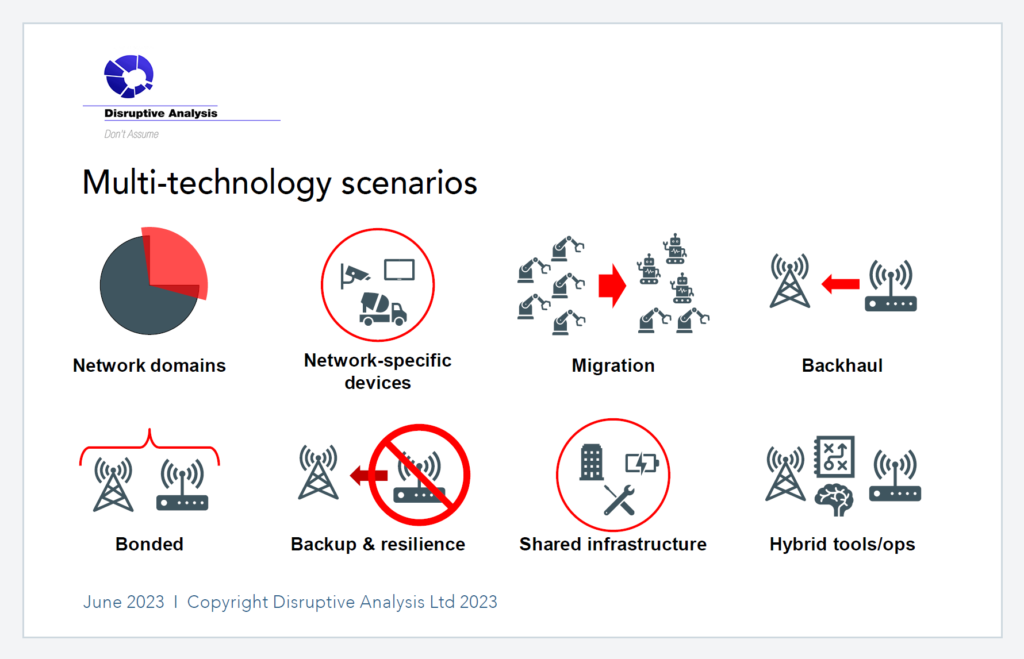The Basics of Private Networks for Enterprises
Share

Private networks have emerged as crucial assets for businesses and organizations seeking secure, efficient, and customizable communication solutions. In this comprehensive guide, we will unravel the basics of private networks, highlighting their significance and the benefits they offer. Whether you’re a tech-savvy professional or someone new to the concept, this article aims to provide valuable insights into the world of private networks, ultimately paving the way for informed decision-making.
What is a Private Network?
At its core, a private network is a communication network that harnesses radio coverage to break free from reliance on public mobile networks. These networks can be constructed using either cellular or Wi-Fi technology, catering to the communication needs of businesses and organizations that demand high-performance, secure, and reliable connectivity. Let’s dive into the fundamental aspects of private networks.
Unveiling CBRS
The Citizens Broadband Radio Service (CBRS) has recently emerged as a transformative force in the private network landscape. CBRS facilitates the sharing of the 3.5 to 3.7 GHz spectrum band among federal and commercial users, introducing a unique spectrum-sharing paradigm. To grasp the full picture, we’ll provide an overview of CBRS’s history and its relevance in enhancing private LTE and 5G networks.
The Key Benefits of Private Networks
Private networks bring a plethora of advantages to the table, making them indispensable for various industries:
- Controlled Coverage: Organizations gain the freedom to deploy networks with precise control over base station locations, resulting in enhanced security and encryption management.
- Capacity and Reliability: Private networks ensure optimal capacity by meticulously assigning users, meeting stringent reliability requirements.
- Scalability: The network’s scalability is a key asset, allowing for effortless expansion through the deployment of additional base stations as needed.
- Predictable Latency: Private networks guarantee consistent and predictable latency, a critical factor for real-time applications.
- High Data Speeds: These networks facilitate swift and efficient data transfer, a prerequisite for data-intensive applications.
Private Networks vs. Public Wi-Fi: Bridging the Gap
Let’s navigate through the crucial distinctions between private networks and public Wi-Fi, focusing on performance, security, and other pivotal aspects. This comparison will help elucidate why private networks are gaining ground and proving indispensable in various scenarios.
An Insight into Each Technology and Use Cases
We’ll embark on a journey through the technology landscape, shedding light on:
- Wi-Fi: Known for affordability and high speeds, Wi-Fi is a widely adopted technology. However, it may not be the ideal choice for enterprises with security-sensitive applications or sprawling premises.
- Private LTE: Private LTE networks excel in large enterprise operational sites, offering security and reliability advantages over public networks.
- Private 5G: Private 5G networks boast higher bandwidth, lower latency, and improved mobility, making them a prime choice for industries with stringent reliability and privacy requirements.
Navigating the Network Technology Terrain: When to Deploy Each
Selecting the right technologies hinges on the specific application:
Private LTE: Ideal for Rapid Deployments in Large Enterprise Sites
Private LTE is perfect when you need to set up a robust and reliable network quickly in large business areas. It’s ideal for:
- Rapid Deployment: Private LTE networks can be swiftly established, making them suitable for large-scale operations like manufacturing plants or corporate campuses.
- Reliability: They offer high reliability for critical applications, ensuring uninterrupted operations.
- Control: Private LTE allows precise network control, vital for tailored resource allocation.
Private 5G: Suited for High-Speed, Low-Latency, and Secure Needs
Private 5G networks are advanced and fit for industries needing:
- High-Speed Data: They provide high-speed data transfer, great for HD video streaming and AR/VR applications.
- Low Latency: Perfect for real-time applications like manufacturing robots or telemedicine.
- Enhanced Security: Offers strong security for data-sensitive industries.
Wi-Fi: Best for Smaller Premises, Budget-Conscious, and Quick Deployments
Wi-Fi is a practical choice for:
- Smaller Spaces: Suitable for cafes, small offices, and retail shops.
- Budget Constraints: Cost-effective for businesses with limited budgets.
- Speedy Setup: Rapid deployment for events or temporary setups.
There’s a misconception that private networks primarily involve selecting the right singular technology (this vs. that, Wi-Fi vs. 5G vs. LTE). In actuality, it’s more about assembling a versatile toolkit of various technologies to support your specific use cases and long-term roadmap. This approach involves a keen focus on both short-term objectives and long-term ambitions.
Looking at a network through these lenses can allow you to evolve your network in stages and also help justify the costs, ROI and monetization of these private networks.

Source: Disruptive Analysis
Read our blog to learn more about which network technologies are the best fit for enterprise needs!
The Importance of Private Network Design: Why It Matters
Now, we delve into the heart of the matter: the importance of designing private networks effectively. Robust network design doesn’t just ensure a smoothly functioning network; it can also save both time and money in the long run. Here’s why it matters:
Cost Efficiency: Well-thought-out network design prevents costly hiccups down the road, eliminating the need for extensive troubleshooting and reconfiguration.
Time Savings: A meticulously planned network requires less time for deployment and maintenance, minimizing disruptions to your operations.
Enhanced Network Performance: Proper design maximizes network efficiency, reducing downtime and enhancing overall performance.
Security: Effective design ensures that security measures are integrated seamlessly, safeguarding your network against potential threats and vulnerabilities.
Reliability: A well-designed network boasts higher reliability, minimizing the risk of outages and ensuring continuous operations.

To learn more, read our blog about Building a Private Network: Step by Step!
To achieve optimal private network design, investing in the right tools and education is imperative. Here, we highlight the significance of quality design software, which streamlines the design process and empowers network professionals to create efficient, reliable, and cost-effective private networks. iBwave is an ideal solution for enterprises deploying private LTE, 5G, or Wi-Fi, thanks to the best-in-class prediction accuracy and advanced design automations that significantly simplify your work! Visit our iBwave Private Networks page to learn more!

Conclusion
Private networks are a formidable solution for enterprises seeking secure, efficient, and adaptable communication networks. By prioritizing effective network design, you can harness the full potential of private networks, ensuring they align with your organization’s unique requirements. A well-designed private network is not merely a tool; it’s a cornerstone of connectivity, empowering your organization to thrive in today’s digital landscape.
If you want to learn more about Private Networks, explore our course “Fundamentals of Private Networks“! This course offers a comprehensive understanding of designing and deploying robust private networks. By enrolling, you can save valuable time and resources while ensuring your network operates optimally. You can discover more about this course and unlock the full potential of private network design here!

- Transforming Wireless Network Management with Digital Twins - April 2, 2025
- Top 3 Trends Shaping Network Design - January 17, 2025
- Streamlining Network Design with GPU-Accelerated Predictions - May 21, 2024


















